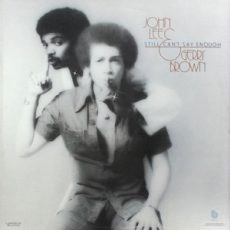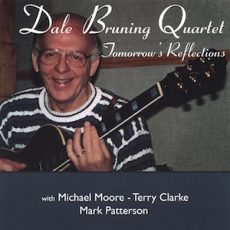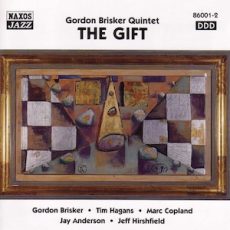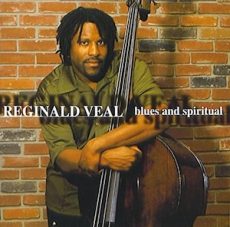
Daily Dose Of Jazz…
Gerry Brown was born on November 9, 1951 in Philadelphia, Pennsylvania. He began playing the drums at the age of five and played with soul groups and played in high school with bassist John Lee, with whom he attended music academy in 1970.
In 1971, he moved to New York City where he played with Lionel Hampton. In 1972 he moved to the Netherlands with Lee to join Chris Hinze’s rock jazz group. They recorded a series of albums in the 1970s. Alongside Lee, he also worked for Jasper van ‘t Hof, Toto Blanke, Charlie Mariano, Eef Albers and Gary Bartz mid-decade. Subsequently, they were members of Larry Coryell’s The Eleventh House for two years; Brown also played for Stanley Clarke and Chick Corea. In 1979, he accompanied Didier Lockwood at the Montreux Jazz Festival.
Settling in Berlin, Germany for some time in 1982 and worked with George Gruntz, with Joachim Kühn, and with Chris Beckers, Herb Geller, Anne Haigis and Kraan until he returned to the United States. As a sideman Gerry has worked with including ones with George Benson, Michał Urbaniak, Urszula Dudziak, Marcus Miller, Lionel Richie, Sonny Fortune, Alphonso Johnson, Roberta Flack, Joe Sample, Tom Harrell, Dave Samuels, and Chuck Loeb, among others.
Drummer Gerry Brown continues to perform and record.
More Posts: drums,history,instrumental,jazz,music

Daily Dose Of Jazz…
Dale Bruning was born on November 8, 1934 in Carbondale, Pennsylvania. During the 1940s and 1950s he spent time living, working and recording in Pennsylvania, New Jersey and New York. During his tenure in the United States Navy from 1953-57, he was a guitarist and arranger, but when called upon he also played piano, bass, vibes, and percussion.
Leaving the military in 1957 he studied at Temple University, graduating with a bachelor of arts degree in psychology. He took as many music classes as he could. Concurrently, he studied music and guitar with Dennis Sandole.
1961 saw him as the leader of the house band for The Del Shields Show, a television variety program. In 1964, he and his family moved to Denver. A broken glass accident in 1988 that deeply cut his wrist nearly ended his performing career. Practicing through the pain during the rehabilitative process was rewarded, and Dale has become an even stronger performer.
Equaled by his talent in composing, arranging and educating, during his 65 plus years of private teaching, he has expressed the joy of jazz to more than 1000 students, and has been featured in numerous magazines.
Guitarist, composer, arranger, author and educator Dale Bruning, who lived in Longmont, Colorado from 1994-2017 and now resides in Thornton, Colorado, continues to perform and record.
More Posts: arrange,compose,guitar,history,instrumental,jazz,music

Daily Dose Of Jazz…
Nick Lyons was born in New York City on November 7, 1982. He graduated from Oberlin Conservatory of Music in Oberlin, Ohio, then lived and actively played in the San Francisco Bay Area. Returning to New York he settled in Brooklyn in 2005 and collaborated with pianist and mentor Connie Crothers until her passing in 2016. This had a profound effect on his approach to music and improvisation. His other significant teachers and mentors have included Donald Byrd, Donald Walden, and Gary Bartz.
In 2022 he toured as a solo performer in Denmark and Germany, participated in 2 residencies in France and 1 in the US with the Paris-based group Mobke, appeared on 2 CD releases, “Triple Exposure” under his own name with Gene Perla and John McCutcheon and “Another Spring” with vocalist Cheryl Richards, performed often with bassist Adam Lane’s quartet, performed with pianist Harvey Diamond and bassist Cameron Brown.
In 2020 he joined the improvising ensemble Concerts from Cars which traveled the streets of NYC as a car caravan and performed from the street. They have performed at clubs all over New York. Lyons has been a sideman with William Parker, Sam Ospovat, Adam Caine and Federico Ughi as well as a duet with pianist Carol Liebowitz.
Among the many he has performed with are pianists Connie Crothers and Kazzrie Jaxen; trio with clarinetist Bill Payne and flutist Robert Dick, tenor saxophonist Jimmy Halperin, bassists Michael Bisio, Ken Filiano, Hill Greene, and Ratzo Harris, and drummers Roger Mancuso, Michael Wimberly, Billy Hart, and Billy Mintz.
Nick Lyons, who is an improvising alto saxophonist and composer has earned a reputation among peers for his musical imagination and original approach to playing both standard tunes and pure improvisation.
More Posts: bandleader,composer,history,instrumental,jazz,music,saxophone

Daily Dose Of Jazz…
Gordon Brisker was born on November 6, 1937 in Cincinnati, Ohio and began on piano as a child. He studied reed instruments at the Cincinnati Conservatory of Music. Before enrolling in the Berklee College of Music he played with Ralph Marterie Following this he worked with Al Belletto, Bill Berry, and Woody Herman.
Moving to New York City he played with Louie Bellson and Gerry Mulligan. After a short time Brisker returned to Cincinnati, then moved to Los Angeles, California where he worked extensively as a studio musician.
From 1983 to 1985, Gordon taught at Berklee College of Music and during this time also arranged for Herb Pomeroy. After 1985 he returned to Los Angeles, recording extensively with Anita O’Day and Bobby Shew among others. He recorded several albums under his own name.
In the 1990s, Brisker moved to Australia and taught at the Sydney Conservatorium of Music. Tenor saxophonist Gordon Brisker died of pancreatic cancer on September 10, 2004 at the age of 66.
More Posts: educator,history,instrumental,jazz,music,saxophone

Daily Dose Of Jazz…
Reginald Veal was born November 5, 1963 in New Orleans, Louisiana. Growing up he began piano lessons at a very early age and received a bass guitar as a gift from his father at the age of eight. He went on to later join his father’s gospel group as the bassist.
Veal studied with the legendary New Orleans bassist Walter Payton, attended Southern University, studying bass trombone with clarinetist Alvin Batiste. From 1985 to 1989 he toured with pianist and teacher Ellis Marsalis as his bassist. During this time he also worked with Pharoah Sanders, Elvin Jones, Charlie Rouse, Hamiet Bluiett, Harry Connick Jr., Terence Blanchard, Dakota Staton, Donald Harrison and Marcus Roberts.
In 1987 he began playing in the Wynton Marsalis Quintet, which became the Wynton Marsalis Septet in 1988. He is the original bassist for the Lincoln Center Jazz Orchestra. Reginald has worked with Ahmad Jamal, McCoy Tyner, Branford Marsalis, Cassandra Wilson, Courtney Pine, Yusuf Lateef, Nicholas Payton, Eric Reed, Dianne Reeves, Junko Onishi, Mark Whitfield and Greg Tardy.
Bassist and multi-instrumentalist Reginald Veal resides on the West Coast where he continues to record and tour.
More Posts: bandleader,bass,history,instrumental,jazz,music


